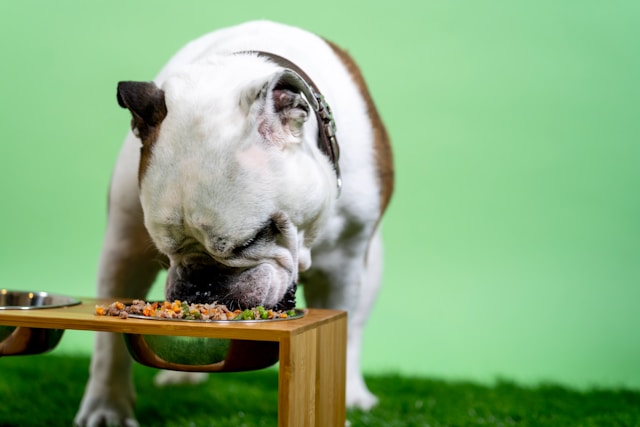Dogs, our valued family members, often stare intently at our plates during meals, hoping for a tasty morsel to come. Although you need to be careful about what you feed your furry friend, there are actually some human foods that are safe to feed to your dog and that provide entertainment and nutritional benefits for your dog.
1. Carrot
According to Purina, dogs get the same health benefits from carrots as they do from a variety of other fruits and vegetables. Additionally, all parts of carrots, including the carrot itself and the green leaves, are considered safe for dogs to ingest. These crunchy vegetables make great treats for dogs. Carrots are low in calories and high in fiber and vitamin A, which promotes good eyesight and a healthy coat. Many dogs prefer the satisfying crunch of raw carrots, but for older dogs or dogs with dental problems, cooked carrots are a softer alternative.
2. Peanut butter
Peanut butter, a perennial dog favorite, is not only delicious, but also a great source of protein and healthy fats. When choosing peanut butter for your dog, choose varieties without added sugar or artificial sweeteners such as xylitol, which can be toxic to dogs.
Also read: Is peanut butter safe for dogs?
3. Blueberry
These small, nutritious berries are not only safe for dogs, but also highly beneficial. Blueberries are rich in antioxidants, vitamins, and minerals, making them a great addition to your dog's diet. They can be fed fresh or frozen and make a delicious and refreshing snack, especially on hot summer days.
4. Cooked chicken
Cooked chicken, without any seasonings or bones, is a safe and protein-rich option for dogs. It's a versatile ingredient that can be added to regular meals or served as a special treat. Chicken is also gentle on the stomach, making it an ideal choice for dogs with sensitive digestive systems.
5. Plain yogurt
Plain yogurt is a nutritious, probiotic-rich snack that supports your dog's digestive health. It's important to choose yogurt without added sugar or artificial sweeteners. Additionally, dogs with lactose intolerance may not tolerate yogurt well, so it's best to feed it in small portions and observe the reaction.
While it's important to be careful when sharing human food with your dog, incorporating small amounts of safe, nutritious options can enhance your dog's diet and provide extra enjoyment. Always consult your veterinarian before changing your dog's diet, especially if he has any health issues or dietary restrictions. Choose the right food in moderation to delight your dog with delicious and nutritious treats.
Click here to read more articles by Dumani Moyo
Artificial intelligence helped edit this article.

